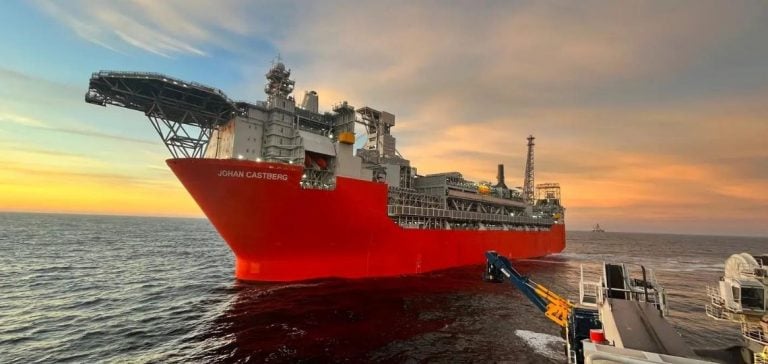The Johan Castberg oil field in the Barents Sea marks a milestone in the exploration of Arctic energy resources.
With an expected capacity of 220,000 barrels per day, it becomes an essential base for future exploitation of this largely underexplored region.
The project meets Europe’s energy supply needs as the North Sea oil fields approach their decline phase.
The Castberg project is scheduled for completion in the fourth quarter of 2024, and its strategic position could accelerate other projects in the region, notably the Wisting field, even further offshore.
Interest in this region is being stimulated by new seismic imaging technologies that provide a better understanding of potential resources.
These technological advances offer more precise images, enabling new deposits to be identified, paving the way for intensified exploration.
As a major supplier of energy to Europe, it is imperative for Norway to diversify its resources and maintain its production capacity, despite the difficulties associated with Arctic infrastructure.
The Arctic gas transportation dilemma
One of the main challenges for gas development in the Barents Sea is transporting resources to European markets.
Currently, gas from the region is processed at the Melkøya liquefaction plant, but this facility is already being used to full capacity by the Snøhvit field.
In the short term, a solution must be found to transport the additional gas volumes, as Europe, particularly after 2025, will face a significant reduction in gas deliveries from the North Sea.
The project for a new gas pipeline linking the Barents Sea to the existing network in Norway, supported by pipeline operator Gassco, could be a solution, but it depends on the discovery of sufficient volumes to justify such an infrastructure.
Equinor, the main operator in the region, continues to evaluate this option while investing in exploration to maximize the region’s gas potential.
However, building new pipelines poses considerable logistical challenges, not least because of the remoteness of the facilities.
Exploration prospects despite uncertainties
Despite the difficulties, the future of exploration in the Barents Sea looks promising.
The latest seismic campaign in the region has revealed new prospects for oil and gas companies.
In contrast to the areas close to the Russian border, which have been relatively unsuccessful to date, attention is now turning to the western Barents Sea, closer to the Norwegian Sea.
Discoveries of gas or oil in this area would be decisive in motivating new investment in transport infrastructure.
However, the current situation reflects a classic “chicken and egg” problem: lack of infrastructure slows exploration investment, and lack of discovered resources slows infrastructure development.
The potential therefore remains largely untapped, despite technological advances.
Companies such as Var Energi, in partnership with Equinor, continue to play a central role in these developments, but further efforts will be needed to ensure a sustainable future for the industry in this region.
The decline of North Sea fields: a challenge for Norway
At the same time, the North Sea oil and gas sector is facing a major challenge.
Major fields such as Johan Sverdrup, due to come on stream in 2019, are approaching peak production, and the decline expected as early as the end of the year is a source of concern.
Norway, dependent on these resources for its energy exports, will have to step up its exploration efforts in other areas to compensate for this decline.
The existing infrastructure, though robust, may not be sufficient to cope with rapidly declining volumes.
The future of the export system, which supplies several European countries and the UK, may require major adjustments over the coming decades.
Gas and oil flows could be redirected, but this will take time, and the success of these adjustments will largely depend on Norway’s ability to maintain its production levels.
An evolving regulatory framework
Norway’s regulatory framework has also adapted to environmental concerns, restricting new exploration licenses to areas already known under the “pre-definition” regime, rather than the classic numbered license cycles, which used to be more extensive.
This restriction is currently holding back exploration in more remote areas, but some observers predict a return to more open cycles after the 2025 elections.
Despite these developments, the Norwegian industry remains on a solid footing, with committed exploration and development players such as Aker BP and Harbour Energy seeking to maximize the opportunities offered by existing resources.
In the long term, however, Norway will need to reassess its strategy if it is to remain a key supplier of energy to Europe, as demand continues to grow.






















